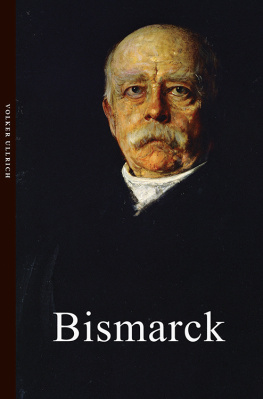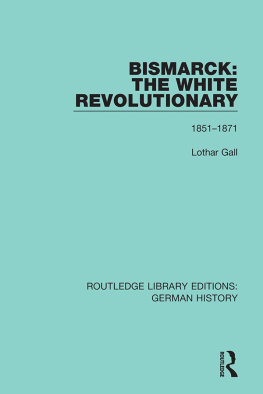First published in 1968 by George Allen & Unwin Ltd
This edition first published in 2021
by Routledge
2 Park Square, Milton Park, Abingdon, Oxon OX14 4RN
and by Routledge
52 Vanderbilt Avenue, New York, NY 10017
Routledge is an imprint of the Taylor & Francis Group, an informa business
1968 George Allen & Unwin Ltd
All rights reserved. No part of this book may be reprinted or reproduced or utilised in any form or by any electronic, mechanical, or other means, now known or hereafter invented, including photocopying and recording, or in any information storage or retrieval system, without permission in writing from the publishers.
Trademark notice: Product or corporate names may be trademarks or registered trademarks, and are used only for identification and explanation without intent to infringe.
British Library Cataloguing in Publication Data
A catalogue record for this book is available from the British Library
ISBN: 978-1-03-203925-1 (Set)
ISBN: 978-1-00-319296-1 (Set) (ebk)
ISBN: 978-1-03-201107-3 (Volume 10) (hbk)
ISBN: 978-1-03-201114-1 (Volume 10) (pbk)
ISBN: 978-1-00-317718-0 (Volume 10) (ebk)
Publishers Note
The publisher has gone to great lengths to ensure the quality of this reprint but points out that some imperfections in the original copies may be apparent.
Disclaimer
The publisher has made every effort to trace copyright holders and would welcome correspondence from those they have been unable to trace.
FIRST PUBLISHED IN 1968
This book is copyright under the Berne Convention. Apart from any fair dealing for the purpose of private study research, criticism or review, as permitted under the Copyright Act 3, 1956, no portion may be reproduced by any process zoithout written permission. Enquiries should be addressed to the publisher.
George Allen and Unwin Ltd., 1968
PRINTED IN GREAT BRITAIN
in 10 on 11 point Plantin type
BY WILLMER BROTHERS LIMITED
BIRKENHEAD
The reader and the teacher of history might be forgiven for thinking that there are now too many series of historical documents in existence, all claiming to offer light on particular problems and all able to fulfil their claims. At any rate, the general editor of yet another series feels obliged to explain why he is helping one more collection of such volumes into existence.
One purpose of this series is to put at the disposal of the student original materials illustrating historical problems, but this is no longer anything out of the way. A little less usual is the decision to admit every sort of historical question: there are no barriers of time or place or theme. However, what really distinguishes this enterprise is the fact that it combines generous collections of documents with introductory essays long enough to explore the theme widely and deeply. In the doctrine of educationalists, it is the original documents that should be given to the student; in the experience of teachers, documents thrown naked before the untrained mind turn from pearls to paste. The study of history cannot be confined either to the learning up of results without a consideration of the foundations, or to a review of those foundations without the assistance of the expert mind. The task of teaching involves explanation and instruction, and these volumes recognize this possibly unfashionable fact. Beyond that, they enable the writers to say new and important things about their subject matter: to write history of an exploratory kind, which is the only important historical writing there is.
As a result, each volume will be a historical monograph worth the attention which all such monographs deserve, and each volume will stand on its own. While the format of the series is uniform, the contents will vary according to need. Some problems require the reconsideration which makes the known enlighteningly new; others need the attention of original research; yet others will have to enter controversy because the prevailing notions on many historical questions are demonstrably wrong. The authors of this series are free to treat their subject in whatever manner it seems to them to require. They will present some of their evidence for inspection and help the learner to see how history is written, but they will themselves also write history.
G.R.E.
The documents in the second half of this book have been selected to provide students and other readers with some of the primary materials on which professional historians base their judgments. The editors own account in Part I should not deter the reader from forming his own assessment of the many problems presented by Bismarcks Germany.
Cross-references to the numbered documents are inserted at the appropriate places in Part I, in the form of numbers in parentheses to distinguish them from footnote numbers in superscript. The sources from which the selections are taken are identified in a note to each document. Where these are in German the selected passages have been translated by the editor.
University of Keele
November 1967
W.M.S.
CONTENTS
GENERAL INTRODUCTION
PREFACE
PART I: THE AGE OF BISMARCK
1 Introductory: Prussia and Germany in 1862
2 Bismarck and the constitutional conflict in Prussia
3 Bismarck and the unification of Germany
4 Political problems and developments in Bismarcks Germany
5 Religious and cultural aspects of Bismarcks Germany
6 Economic and social problems in Bismarcks Germany
7 Aspects of Bismarcks foreign policy, 18711888
8 Bismarcks last years in power
PART II: SELECTED DOCUMENTS
A The Prussian constitutional conflict and its settlement after the defeat of Austria
a Bismarck in 1863 on the internal and external problems of Prussia
1 In the Prussian House of Representatives (27 Jan.)
2 To the Prussian ambassador in St Petersburg (24 Dec.)
b The liberalsstruggle with Bismarck and their consciences
3 J. G. Droysen (18631866)
4 Heinrich von Sybel (1864)
5 Karl Twesten (18651866)
6 Rudolf Haym (1866)
7 Rudolf von Ihering (1866)
8 Hermann Baumgarten (1866)
9 From Baumgartens Self-Critique (1866)
10 From A. L. v. Rochau, Right and Might (1866)
11 Heinrich von Treitschke (18621866)
c The immovable opposition to Bismarck in 1866
12 A south German retort to Treitschke (J. Venedey)
13 From E. L. v. Gerlach, The Annexations and the North German Confederation
B Foreign and domestic problems between 1866 and 1871
14 From Adolf Schmidt, Prussias German Policy (1867)
15 From Ludwig Bamberger, Herr von Bismarck (1868)
16 From A. L. v. Rochau, Principles ofRealpolitik (1869)








